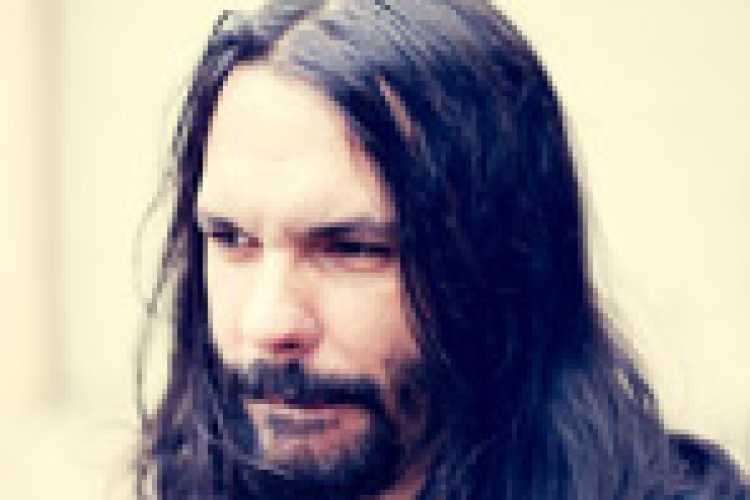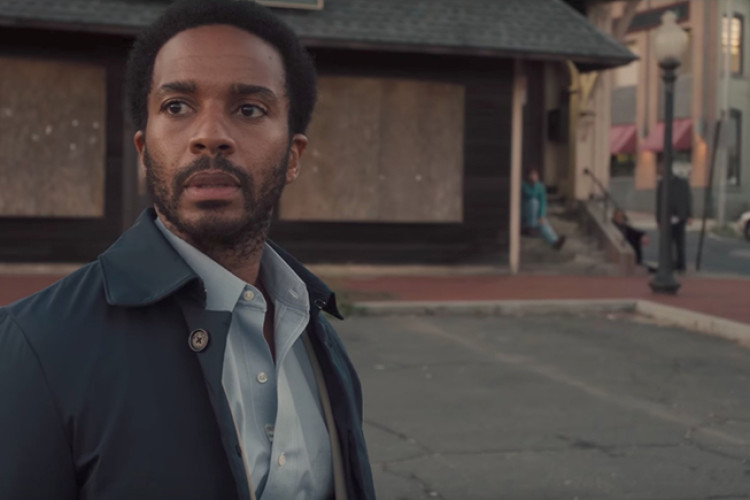Understanding Comedy with Gurmit Singh
Mariati Galatio (M) talks to Singapore comedian, actor, & host, Gurmit Singh (G).
by Ken Jenie



M
What’s your role in Tropfest?
G
I was invited for a talk on how local comedy can travel and we had a symposium the day before in which I was interviewed by Tan Kheng Hwa who funnily enough played my sister-in-law in the sitcom we were in together called Phua Chu Kang. That sitcom started out in 1997-98 as an underdog with no budget and no sponsors because of the premise of the show. It was very Singlish (Singaporean English) characters in which the main character (Phua Chu Kang) is a bit crass, irreverent, but still lovable. Because of that, nobody came forward to finance the project but we decided to still go ahead with it.
After we finished our first season, we won Best Sitcom, Best Actor, Best Actress in Asian Television Award beating out another very popular drama television at that time. That’s when we got the attention and was able to finish our 10th season, making it the longest running English show in Singapore history. We also started to find audience within expats in Singapore who were having difficulties understanding the language and jokes but after a few episodes, they would then get the gist of the show.
M
Tell us a bit about the history of sitcom in Singapore
G
It started around 1995-1996 when Under One Roof sitcom came on the television. That year, the national broadcaster which was the only station at that time, decided to come up with their own content with TV drama, sitcoms, and variety shows. There were a lot of American sitcoms such as Friends, Fresh Prince of Bel Air and British sitcoms such as Yes Minister and ‘Allo ‘Allo!’ on television so we were very much influenced by those shows. Prior to that, there were a lot of Chinese dramas that have been around since the 80’s since that was what the audience wanted.
As someone who’s been in the Singapore’s entertainment industry for over 20 years, can you describe how it was in the beginning and how it is now? Is there more films now, what kinds of film they’re making?
We’re very young in comparison to the States or even the neighboring countries in terms of sitcom and theatre. It seems to have switched focus. In the 80s, the production was all about drama. Then, in the 90’s, we have sitcoms. Then, theatre production started to bloom, that’s the reason why the government decided to build the Esplanade Theater. Within the TV programming, it started to shift towards reality show early 2000. Right now, the industry is growing but the focus is on many different formats. That worries me because it may never get developed.
M
Is acting perceived more as an art form or entertainment in Singapore?
G
For the longest time, it’s perceived as entertainment and not a ‘real’ career. When I first joined the industry in 1994, my parents were very puzzled as to why I’d want to have a job that doesn’t pay well. In the next few years, when I started to be more successful and able to support myself, they (my parents) started to realize that you can actually live off this profession.
M
G
Now we have School of Arts which was started around 7 years ago. You have an option of going to this school instead of regular Junior High School which started around age 13. The school teaches theater, dancing, singing, music, and the school goes to a great length to nurture talents. For example, there was this boy who was really good in Er Hu (traditional Chinese instrument) but the school has no Er Hu program so they went to get a teacher from China to teach this boy. It’s a 6-year ivy program so only recently they had its first batch of graduates. That goes to show how perception of acting has changed over the course of 20 years.
I think parents started to realize that, at the end of the day, your child has to grow up and do what they love, just like what I’m doing.
M
Do you think that art is on its way to be considered a ‘regular job’ such as a banker, accountant, or doctor?
G
I don’t think many can make a lot of money from the arts, because the arts is a very subjective field. What I find problematic is when the parents believe their kids are talented, push them too much, and at the end of the day, the children are forced into the arts and they do not enjoy it.
M
Being a comedian, what is performing stand up comedy in Singapore like? Is there an infrastructure that nurtures it and how do you adapt your stand up comedy with local culture and languages?
G
I have done comedy all my life but in 2012 I did my first, and my last, stand up comedy. I find stand up comedy to be the most challenging, most difficult genre of comedy. It is just you – it is as bare, raw and naked as you can get, and what if they don’t laugh?
I had producers for stand up comedies come to me to plan a year’s worth of touring… I would rather bungee jump without the rope, because then I know what I am getting into (laughs). What’s funny for me might not be funny for you – it is so subjective and challenging. The reason why I did one was because it was a new concept with a big production, featuring 10 comedians, so if I flopped there would be somebody after me to pick up the pieces.
I did the stand up and the response was incredible, but honestly as I was preparing for it and as I did it, I was a wreck. I’m glad I am a good actor so nobody saw it, but inside I was terrified.
M
Wouldn’t this experience a good one, you can explore it as an artist – your fears?
G
If I am not on stage or in front of the camera, I’m a fairly quiet person – it’s a Jekyll and Hyde thing. I understand that anxiety and fear comes from the adrenaline, and it is a good feeling because it means you care about what you do. Stand up comedy was beyond this for me, but honestly it was painful. I saw the laughs and that was good, but I wasn’t doing well.
M
Will stand up comedy blossom in Singapore?
G
It is blossoming, kudos to the pubs that brought the concept and often failed in the 90s – they planted the seeds of stand up in Singapore. Now we have pubs around town where comedians regularly do gigs, with local and international acts performing. There is an effort being made and I think that is healthy, because not every stand up comedian can be a comedian, and vice versa.
M
I wonder how relatable local stand up comedians, perhaps from Indonesia, would translate to a foreign audience, because many of the acts seems to specifically cater to the local audience.
G
I think stand up comedians have to be clever. Even an American comedian would sometime have difficulties conveying the message to somebody in the UK because the cultural context is different. I have seen stand up comedians who do not bother to change their material for their audience, and that is a problem.
I have heard many great comedians tell me that they have an A to Z routine, and as they are going through the motions, they pick up the audience reactions and adapt their material on the spot for the audience.
M
As an actor, host, comedian, how do you approach your work? Is there a method or technique that you use to approach your work in entertainment?
G
First of all I approach it with gratitude. I come from a low educational background so what I have achieved today – the financial stability, the career, the livelihood – these things are beyond what I could ever have dreamed.
When I do a production, it usually depends on a director, because some involve us more than others, and the productions could be long or very short. If I had the time I would do more research for a role, sometimes I have to wing it.
M
Is there a project that you would like to do that you haven’t done?
G
I think it is a little bit too late, but I have always wanted to do a kung fu flick = like a Jackie Chan type of thing.
M
It’s not too late.
G
I just threw my back, so I think my time is running out. (laughs) I fell in love with kung fu films growing up, and although I know it is all fake, but it looks so damn good! (laughs).
M
Which director would you like to work with that you haven’t work with?
G
I would like to work with Quentin Tarantino because he seems so quirky. I also think it is very cool to see a director do cameos in his film, and his humble beginning.
M
What are your latest projects?
G
I have a food show going, a television movie, a couple of sitcoms – I am booked until August. (laughs)
M
That’s about it, thank you very much for this interview.
G
You’re welcome.
Photography by: Nadhirah Zakariya











